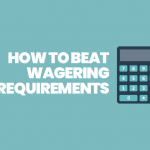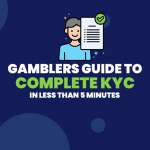The UK Gambling Commission, widely recognized as the UKGC, plays a pivotal role in regulating both physical and online casinos in the UK. online gaming in the United Kingdom They grant licenses to digital gaming platforms and keep an eye on their operations to ensure compliance.
Holding a license from the UKGC places online casinos among the most trusted in the gaming industry. Our guide delves into the reasons these establishments are held in such high esteem, as well as the pivotal role played by the Commission.
What Steps Must Online Casinos Take to Secure a UKGC License?
The UK requires operators to apply for a license when they want to:
- Enable British players to engage in online gambling activities securely.
- Maintain operations or any aspect of their business within the UK borders.
Casino operators kick off their licensing journey by navigating to the UKGC’s official site. It serves as a resource hub where they can access all necessary licensing forms and detailed guidelines.
The cost of applying for a license shifts according to the operator’s yearly gross-gaming income. Some of the application fees are:
- £2,640 when earning less than £550,000 per year.
- £6,452 when earning £550k to £2 million per year.
- For a revenue of £2 million to £5.5 million annually, the fee is £6,452.
- If the annual revenue falls between £5.5 million and £25 million, the fee rises to £10,147.
- For those earning £25 million to £100 million each year, the cost is £14,897.
- A yearly income bracket of £100 million to £250 million incurs a fee of £23,977.
- And for those earning between £250 million and £550 million, the fee stands at £33,832.
- £57,304 when earning over £550 million per year.
Approved operators are also required to pay yearly fees, due within 30 days of receiving their license.
Much like the application costs, the annual fees correlate with the casino’s income, structured as follows:
- £2,709 when earning less than £550,000 per year.
- £6,488 when earning £550k to £2 million per year.
- A revenue between £2 million and £5.5 million results in a yearly fee of £9,480.
- Annual earnings in the range of £5.5 million to £25 million necessitate a fee of £13,307.
- With revenue between £25 million and £100 million, the fee is £35,541.
- For earnings of £100 million to £250 million annually, the fee increases to £68,146.
- Finally, casinos earning £250 million to £550 million pay an annual fee of £136,455.
- £387,083 when earning over £550 million per year.
Beyond the required documentation and fees, the UKGC expects applicants to demonstrate certain standards:
- Operators need to show financial stability and the capacity to pay out winnings.
- Feature a clear ownership structure.
- They should possess adequate experience tailored to the UK market.
- Owners or key personnel must not have any criminal histories.
- They should demonstrate proactive measures to support and protect individuals with gambling problems.
In addition to these fees, online casinos licensed by the UKGC must pay a 15% tax on their annual profit.
Failure to meet these exacting criteria results in application rejections. Unsatisfied operators can appeal to an independent entity. HM Courts & Tribunals Service .
Advantages of Opting for a UKGC Licensed Online Casino
Many gaming platforms seek a presence in the UK, driven by these compelling reasons.
1
Top-tier Jurisdiction
The UK Gambling Commission is often considered the pinnacle of online gaming jurisdictions worldwide. It boasts a stringent application process and vigilant oversight.
The UKGC doesn’t shy away from imposing fines or suspending licenses if regulations are breached. A notable instance occurred in March 2020, when Stakers.com faced suspension for multiple breaches.
2
Large Country & Economy
With over 66 million inhabitants, the UK stands as Europe’s third-largest nation by population, offering a substantial pool of potential gamers. explore European online casinos .
Alongside a vast population, the UK also holds the title of Europe’s second-largest economy, buoyed by a GDP of £2.7 trillion. This vibrant economy allows its citizens ample capacity for wagering.
3
Mainstream Advertising
The UKGC was among the trailblazers in permitting operators to feature in mainstream advertising channels. Such liberties have persistently enabled online casinos to reach audiences without unconventional methods.
4
Low Fees
Application and maintenance fees within this jurisdiction adapt to an operator’s annual revenue. For top-earning casinos, the fees can reach five or six digits.
Still, the entry barriers remain relatively low here. For instance, an online casino with under £25 million in annual revenue will face a £10,147 application fee coupled with a £13,307 yearly fee.
Responsibilities of The UK Gambling Commission
The UKGC encompasses a broad spectrum of duties in the nation's gambling scene. As a non-ministerial government department, its roles include:
- Overseeing primary gambling formats within the UK, from online portals to brick-and-mortar venues involving betting, bingo, casino games, and lotteries.
- Safeguarding the gambling sector from criminal influences.
- Protect problem gamblers.
- Enforcing ethical standards for advertising.
- Ensure fair gaming.
- Creating mechanisms for operators and players to resolve disputes with the aid of mediators.
- Issue licenses and collect fees.
- Penalizing gambling sites that run afoul of UKGC standards.
This Commission is undaunted in its mission to rigorously oversee operators, ensuring they market responsibly and shield those predisposed to gambling problems.
This jurisdiction mandates all UKGC-certified online casinos subject their games to third-party verification. Such checks ascertain the integrity and randomness of games’ outcomes.
By evaluating applications and collecting stipulated fees, the Commission not only funds its operations but also serves governmental revenue purposes.
UKGC’s Reputation as a Regulator
Esteemed globally, the UKGC is synonymous with trust. It prioritizes ethical conduct and player safety equivalent to its emphasis on revenue and financial diligence.
Historically, the UKGC hasn’t hesitated to issue penalties against non-compliant licensees. Notable fines include:
- In December 2016, a £3 million fine was levied on Camelot Group for failing to detect a fraudulent lottery claim tied to an insider scam.
- In February 2018, William Hill faced a £6.2 million fine over multiple oversights related to anti-money laundering.
- In May 2018, LeoVegas was penalized £600,000 for misleading ads and inadequate monitoring of self-excluded players.
- In June 2018, 32Red faced a £2 million fine for lapses in supervising a problematic high-stakes gambler.
- By July 2019, Ladbrokes Coral had been fined £5.9 million for neglect in addressing money laundering concerns.
Such instances reflect the UKGC’s commitment to holding companies accountable for their actions, imposing significant fines for regulatory failures.
While robust in many aspects, the UKGC could enhance its approach to handling player grievances, instead of deferring responsibility to operators.
It requires gambling operators to engage with Alternative Dispute Resolution bodies for grievance management.
The UKGC isn’t alone in promoting third-party resolutions, yet it remains the most renowned entity to eschew direct involvement in complaints.
Is Trust Warranted with UKGC-Licensed Online Casinos?
On the whole, UK-based online casinos stand as a global benchmark in trust. They are bound by specific mandates covering responsible gaming, financial transparency, anti-laundering measures, and consistent game verification.
Admittedly, even UKGC-licensed casinos are fallible, as evidenced by occasional hefty fines from the Commission.
Overall, however, UK gambling sites are among the elite in credibility, having successfully navigated through stringent vetting processes proving their financial stability.
Such sites also pledge allegiance to third-party standards, ensuring game fairness and transparency, often showcasing seals from certifying bodies such as eCOGRA.
Moreover, UKGC licensed establishments maintain a clear demarcation between player funds and operational accounts to safeguard player monies from unauthorized usage.

Yggdrasil
NetEnt
Quickspin
1x2 Gaming
4ThePlayer
Adoptit Publishing
AGS
Ainsworth Game Technology
Amatic
Anakatech
Aristocrat
Asylum Labs
Authentic Gaming
Bally Technologies
Bee-Fee
BetConstruct
Betdigital
Betgames.tv
BF Games
Big Time Gaming
BluePrint Gaming
Bulletproof Games
Colossus Bets
Core Gaming
Dreamtech Gaming
Edict
ELK Studios
Endemol Shine Gaming
Evolution
Extreme Live Gaming
Eyecon
Felt Gaming
Games Warehouse
Games Inc
GamesOS
Gamevy
Genii
Golden Race
Green Jade Games
Greentube
Hacksaw Gaming
High 5 Games
IGT
Intervision Gaming
Intouch Games
Iron Dog Studio
iSoftBet
IWG
Kiron Interactive
Leander
Leap Gaming
SYNOT Games




